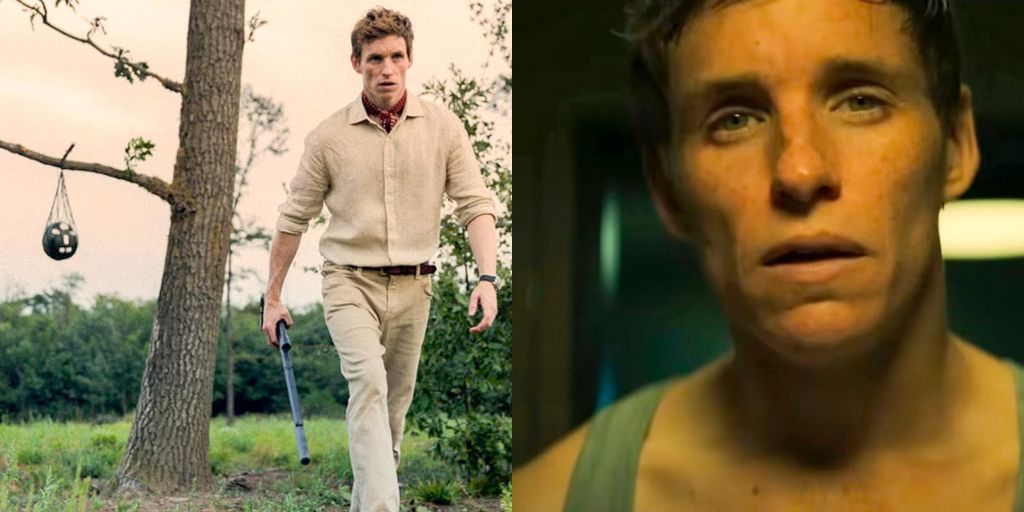When Frederick Forsyth’s novel The Day of the Jackal was released in 1971, it quickly became a sensation for its gripping portrayal of an assassination plot targeting French President Charles de Gaulle.
The novel inspired a 1973 film adaptation directed by Fred Zinnemann that earned critical praise for its tight plotting and the powerful suspense of its storyline.
Now, more than fifty years later, The Day of the Jackal is returning to audiences with a new television series adaptation of Peacock. This version updates the iconic spy thriller, weaving its timeless suspense into the modern world and showing how the central premise still holds up today.
With a setting that tackles contemporary issues and a story brought to life by powerhouse performances from Eddie Redmayne and Lashana Lynch, The Day of the Jackal combines the classic thrills of the original story with new layers of complexity.
By modernizing the novel’s plot while keeping the heart of its tension alive, Peacock’s version of The Day of the Jackal appeals to today’s audiences who want both high-stakes drama and a nuanced character scheme. Here’s a closer look at the new series, its storyline, its cast, and why this fresh adaptation stands out.
The Story: Assassination, Power, and the Impossible Hunt
In the original The Day of the Jackal novel and 1973 film, the story follows a group of far-right extremists plotting to assassinate Charles de Gaulle, who was then the president of France. They enlist a mysterious assassin known only as “the Jackal” to complete the task, leading to a suspenseful game of cat and mouse between law enforcement and the hired killer.
Though the novel was inspired by an actual assassination attempt on de Gaulle’s life, much of the story is fictionalized. In Peacock’s adaptation, however, the premise receives a modern update, trading 1960s Paris for a setting that incorporates present-day themes and a storyline that feels especially timely.
In the new series, Eddie Redmayne plays the Jackal, a highly skilled assassin hired by wealthy, powerful figures with a vested interest in keeping global financial systems opaque and free from regulatory scrutiny. When a man threatens to expose some of the darker financial secrets of the world’s elite, these figures turn to the Jackal to take him out.
Redmayne’s Jackal is introduced as a character with immense skill, but he operates with a calculated restraint that makes his scenes all the more tense. He is both a professional and a perfectionist, a character whose calm exterior hides a dangerously sharp mind.
The story introduces Lashana Lynch as Bianca Pullman, a driven and dedicated operative who becomes entwined in the plot when the Jackal’s near-impossible assassination draws her attention. Bianca’s pursuit of the Jackal takes her across Europe, showing political obstacles and engaging with the powerful elite who will do anything to keep her from uncovering the truth.
As Bianca follows his trail, she realizes that her target is not only elusive but capable of almost supernatural feats of skill—an assassin who leaves no trace and who always seems to be a step ahead.
The modern-day setting of The Day of the Jackal brings additional elements of complexity to the story, such as surveillance technology, advanced weaponry, and modern transportation. These additions create both advantages and obstacles for the main characters.
On the one hand, the Jackal has new tools at his disposal to execute his assignments, including technology that can obscure his whereabouts and capabilities that make him nearly invisible to those tracking him. On the other hand, Bianca can use her own resources, including modern investigative techniques, making her a formidable opponent in the high-stakes game of cat and mouse.
Themes of Global Power and Transparency
One of the ways Peacock’s The Day of the Jackal series stands out is in its treatment of the original novel’s themes. While the 1973 film adaptation stayed closer to the political context of the 1960s, this new series taps into issues that resonate with today’s audience, particularly the themes of wealth inequality and financial transparency.
By anchoring the story in a modern context, the series creates a heightened sense of relevance, allowing the characters’ motivations to feel rooted in real-world concerns.
In recent years, the topics of global financial secrecy and inequality have become increasingly prominent, making this new Day of the Jackal especially timely. The series paints a world in which the powerful seek to preserve their interests by manipulating global systems in their favor, using wealth as a shield against accountability.
The Jackal, working on behalf of these elites, becomes a symbol of how ruthlessly they are willing to act to protect their privileges. As Bianca attempts to dismantle these forces, she finds herself not only in pursuit of a man but challenging a system that is deliberately designed to be impenetrable.
By focusing on this angle, The Day of the Jackal manages to feel both like a traditional spy thriller and a social commentary on the forces shaping our world today. The storyline takes a critical look at how unchecked power allows certain individuals to operate outside the boundaries of the law, hiding behind money and influence.
The show skillfully weaves these issues into the plot without detracting from the core suspense, adding a layer of depth to a familiar genre.
The Characters: Bianca Pullman and the Jackal
At the heart of The Day of the Jackal are its two main characters, Bianca Pullman and the Jackal, played by Lashana Lynch and Eddie Redmayne, respectively. Their performances bring a powerful dynamic to the series, adding emotional complexity to their intense rivalry.
Rather than playing straightforward roles, Lynch and Redmayne create layered portrayals of their characters, with each actor bringing unique nuances to the parts that make their characters feel like complete, multi-dimensional people.
Bianca Pullman is portrayed as a smart, dedicated operative who will go to great lengths to catch her target. Lynch, known for her role as 007’s Nomi in No Time To Die, brings both strength and vulnerability to Bianca’s character.
Unlike some typical spy protagonists, Bianca isn’t immune to making mistakes or becoming overly fixated on her mission. As the story unfolds, her character’s moral boundaries begin to blur, leading her to make choices that push her ethical limits in her pursuit of the Jackal. These choices create a layered portrayal of a woman who is determined to do the right thing, even when the right thing becomes increasingly complicated.
On the other side, Eddie Redmayne’s Jackal is as calculating as he is charismatic. Known for his ability to convey subtle emotions and a quiet intensity, Redmayne brings an eerie calm to the character.
His Jackal is no mere cold-blooded killer; instead, he’s portrayed as a complex figure with his own sense of purpose and even warmth, particularly in his scenes with his wife, Nuria (played by Úrsula Corberó).
This version of the Jackal feels grounded and surprisingly human, even as he takes on impossible tasks. Rather than presenting him as a sociopath, the series gives him a depth that makes him feel like a more nuanced antagonist.
Their interactions fuel the tension of the story, as the rivalry between Bianca and the Jackal becomes increasingly personal. The series skillfully builds their cat-and-mouse game to a climax, showing how their individual personalities and motivations collide.

Each character’s choices reveal more about who they are, creating a sense of suspense that goes beyond the surface-level plot. The complexity of their relationship adds to the series’ full suspense, as viewers become invested not only in the outcome of their chase but in the evolving dynamic between two characters who are both chasing something they believe in.
An Elegantly Crafted Spy Thriller
One of the standout qualities of The Day of the Jackal series is its ability to maintain suspense without relying on flashy, over-the-top effects. The series uses strong plotting and tight pacing to keep viewers engaged, crafting tension through storytelling rather than excessive gimmicks.
From start to finish, the series is carefully structured, balancing action scenes with quieter moments that allow the audience to connect with the characters on a deeper level.
Peacock’s adaptation leans into the classic spy thriller elements that have made The Day of the Jackal such an enduring story, using modern filmmaking techniques to add visual depth to the series. Cinematography plays an essential role in creating the tension-filled atmosphere of the series, with scenic European backdrops providing a contrast to the intensity of the plot.
The European settings, including sprawling cityscapes and remote, almost isolating views, give a sense of both beauty and danger, framing the characters’ movements and decisions within a context that feels both expansive and claustrophobic.
The series also makes effective use of modern technology, subtly updating the original narrative to fit into today’s world. Surveillance systems, advanced weaponry, and data analysis add to the realism of the plot, creating an environment where the stakes feel high and the risks tangible.
However, rather than overshadowing the characters, these elements serve to amplify the suspense and tension of the story, allowing the characters’ actions to carry more weight.
The Impact of the Original Novel and Film
To fully appreciate the significance of Peacock’s The Day of the Jackal, it is essential to reflect on the legacy of Frederick Forsyth’s original novel and the 1973 film adaptation. Forsyth’s novel set a high standard for the thriller genre, combining meticulous research with a tightly woven plot.
Its unique structure, told from multiple perspectives, provided readers with a multifaceted view of the assassination attempt. The Jackal was not just a faceless villain; he became a character of great intrigue, embodying the complexities of a man driven to execute an impossible task for a cause he believed in.
The 1973 film, featuring Edward Fox as the Jackal and directed by Fred Zinnemann, was groundbreaking in its portrayal of espionage and assassination. The film’s pacing, attention to detail, and tense atmosphere captured audiences and critics alike.
It became a benchmark for future thrillers, influencing how stories in this genre are crafted. However, despite its acclaim, the film reflected the values and circumstances of its time, often lacking the nuanced scheme of themes such as gender, race, and socio-political dynamics that contemporary viewers might expect today.
Peacock’s adaptation takes these foundational elements and transforms them for a modern audience. It retains the core premise of a high-stakes assassination plot while layering contemporary societal issues, making the story more relatable to today’s viewers.

By focusing on themes such as financial inequality and corporate greed, the series not only updates the plot but also resonates with current global conversations. This thoughtful approach allows the show to stand on its own while honoring the legacy of its predecessors.
The Evolution of the Spy Genre
The spy genre has evolved significantly since the days of Forsyth’s novel and Zinnemann’s film. The 1970s was a decade characterized by Cold War tensions and political intrigue, resulting in stories that often depicted spies as shadowy figures operating behind the scenes of global politics. As society has changed, so too has the portrayal of spies and assassins in popular culture.
In recent years, there has been a shift towards more complex, morally ambiguous characters who reflect the complexities of modern life. Audiences now seek stories that not only entertain but also challenge their perceptions of right and wrong.
The rise of technology increased globalization, and the interconnectedness of financial markets have all contributed to the evolution of the spy thriller, as writers show how these elements influence power dynamics and personal motivations.
Peacock’s The Day of the Jackal fits neatly into this evolution by providing characters who are not just defined by their roles as assassins and pursuers but by their personal journeys. Bianca and the Jackal are portrayed as flawed individuals grappling with their choices, moral dilemmas, and the implications of their actions.
This character-driven approach allows for deeper storytelling that goes beyond mere action sequences, creating a narrative that engages viewers on multiple levels.
Anticipating Audience Reactions
As the series nears its premiere, expectations are high for how audiences will receive this modern adaptation. Given the legacy of the original work and the critical acclaim of its early promotional materials, viewers are eager to see how the series balances respect for the source material with innovative storytelling.
The success of this adaptation may hinge on its ability to attract both fans of the original novel and film, as well as a new generation of viewers who may be less familiar with the classic story.
By incorporating contemporary themes and relatable characters, the series has the potential to draw in a diverse audience, allowing for discussions around the pressing issues of financial transparency and power in the modern world.
Critics and fans alike are likely to engage with the series through discussions on its themes, character development, and pacing. This engagement could lead to a renewed interest in Forsyth’s original novel, drawing attention to the historical context of the story while highlighting its relevance today.
As viewers tune in, they may find themselves reflecting on the complexities of the world around them and the often blurred lines between right and wrong.
Final Reflections: A Series with Lasting Appeal
The Day of the Jackal on Peacock stands as a testament to the enduring power of storytelling. By reimagining a classic narrative for modern audiences, the series not only pays homage to its roots but also addresses issues that resonate with viewers today. The performances by Eddie Redmayne and Lashana Lynch upgrade the material, grounding the high-stakes drama in relatable human experiences.

As the series unfolds, viewers will likely find themselves captured by the intricate dance between Bianca and the Jackal, their motivations, and the moral complexities they show. With its tight plotting, strong character work, and relevant themes, The Day of the Jackal promises to be a thrilling and thought-provoking addition to the spy genre.
In an era where many spy thrillers can feel formulaic or overly reliant on spectacle, Peacock’s adaptation offers a refreshing perspective that combines intelligent writing with compelling performances. This approach not only enhances the viewing experience but also sets a high standard for future adaptations in the genre.
As the world continues to grapple with issues of power, inequality, and moral ambiguity, The Day of the Jackal serves as a reminder that the stories we tell—whether through the lens of espionage or personal conflict—can resonate deeply with our current realities.
As audiences prepare to watch, one thing is clear: the tension, intrigue, and complex character dynamics of The Day of the Jackal will leave a lasting impression, ensuring that this adaptation becomes a significant part of the conversation around modern thrillers.





